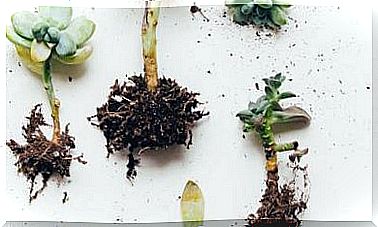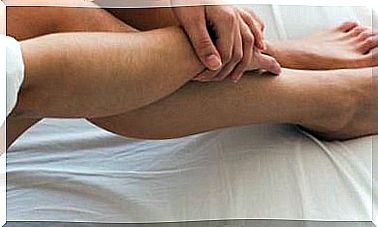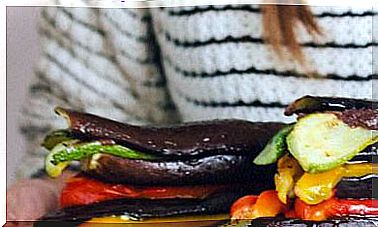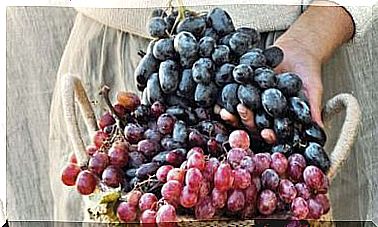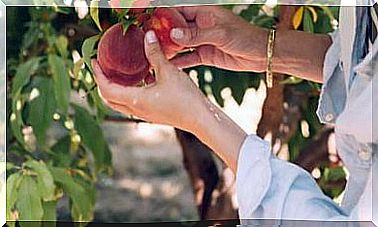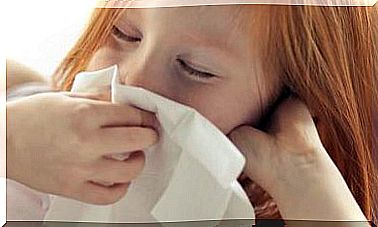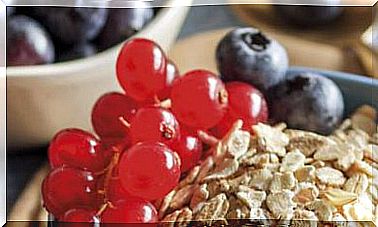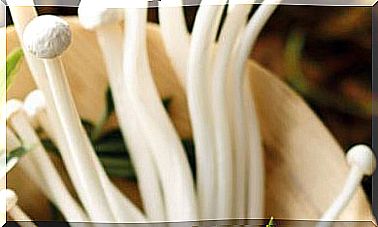20 Simple Tips To Be Happy And Achieve Well-being
Simple gestures and commitments can allow us to live with greater satisfaction, more receptive to friendship and beauty, and reduce our ecological impact.

The happiness and welfare should not depend on a host of requirements, but rather a meet expectations simple and full of personal meaning.
There is nothing reprehensible in setting great goals and striving to achieve them, although it is common to run into serious obstacles or to weaken the will.
On the other hand, proposing a concrete improvement, and achieving it precisely thanks to its modest condition, allows you to savor a small success and consider the next one.
“Step by step the road is walked” or “who covers a lot little squeezes”, as popular wisdom recalls.
Often a person assumes abusive schedules, eats irregularly, sleeps little or badly, ignores the environment and the details that nature provides, consumes certainly unnecessary goods or maintains a relationship of distrust and even rejection with those close to them. The smart thing to do in this case would be to prioritize the changes that bring the greatest welfare with the least investment.
This article proposes twenty simple measures aimed at that end. It would be enough to choose one of them for it to have fulfilled its objective.
1. Eat breakfast at home
According to statistics, less than a quarter of the Spanish population eats a balanced breakfast, and it is estimated that only 10% of school-age children eat an adequate breakfast.
The typical breakfast for a good part of workers, executives and students consists of a pasta and a coffee with milk that is taken at the bar of a bar and with little time.
You can add more richness to breakfast:
- Incorporating whole grains (in flakes or bread), assorted fruit and fresh cheese, which has much less salt than cured cheese.
- It is appropriate that fruit juices are homemade, freshly prepared, allowing realize its vitamin and antioxidant potential.
- The teas without caffeine as white pennyroyal, rooibos and verbena are a good alternative to coffee with milk, and less laxative.
- Leaving some things ready the night before – like the table set – is a wise move.
Starting the day with the people we love is a small pleasure that grows over time.
2. Consume with conscience
No more accumulating is happier. Excess consumption affects the health of the planet and the survival of many peoples and cultures.
It is necessary to reduce the number of plastic containers and bags, replacing them with others made of paper or cloth, reject those products that are over-packed, choose recyclable or reusable containers to the detriment of PVC products and tetrabriks, and opt for appliances and household appliances. low consumption and long life.
And where possible, avoid those products on which there are reasonable doubts as to whether they have been produced causing severe damage to the environment, damage and displacement to local populations or through the use of child labor.
3. Value what you eat
Gaining awareness at the table implies valuing what you eat and appreciating how it was produced. Not only for its possible impact on the body, but for solidarity with the planet and other living beings.
In that sense, it is worth getting in touch with farmers and ranchers, observing how they take care of the land and how they feed livestock, appreciating, for example, the respect that organic producers give to soils, plants and animals, avoiding subjecting them to conditions. deplorable or chemical treatments of uncertain impact on health.
Foods obtained from organic fertilizers and natural agriculture are more authentic, have that flavor that we thought we had forgotten and offer a better nutritional balance.
Using organic eggs, dairy products or meats means supporting a mode of production that tries to offer a decent life to animals. And since the animals raised in farm houses tend to concentrate toxins in their tissues that they cannot eliminate, it is also a way to protect health in the medium and long term.
4. Eat as before
A good way to bet on a rich, diverse and earth- friendly agriculture is to incorporate those plant foods that our ancestors already consumed but that have been relegated or forgotten by the productive dynamics.
Why not resume the consumption of free plants such as purslane and nettles, so nutritious and healthy, dock, a source of vitamin C and iron, burdocks or buckwheat or buckwheat –fajol in Catalan– whose cultivation is recovering in the Girona region of La Garrotxa?
Foods that are part of the diet of other cultures can also be incorporated into the kitchen, such as cassava, okra or quimgombo and quinoa, a staple in Andean cuisine.
5. In the shower, less foam and more health
Water is a scarce commodity and making the effort to save it is a commitment to solidarity with those who barely have it.
Gestures as simple as turning off the tap when lathering – even if the hot water will no longer be felt flowing directly into the drain – allow you to save up to 20 liters per day per person. But you can go further.
There are devices such as aerators for faucets that reduce the flow of water. A basin in the bathtub allows you to collect the cold water that precedes the hot one and use it for another purpose.
It is advisable to choose soaps and shampoos based on natural ingredients – such as calendula, sage, coconut, oatmeal – instead of those that are pure chemistry. Not because of more foam they wash better, rather it may be the opposite. In fact, the foam is usually provided by sodium lauryl sulfate, a fat emulsifier absent in truly natural products.
The moment of the shower allows you to explore the world of aromatherapy, through massages or scrubs with a few drops of essential oils, such as bergamot, peppermint, sandalwood or jasmine, with a wide variety of therapeutic indications.
6. Promote natural textile fibers
2009 was declared by FAO the international year of natural fibers. Its production represents an irreplaceable source of income for many developing countries, for which in many cases it can account for half of their exports. And it is a work, many times handmade, carried out for the most part by women.
Fibers made from flax, cotton, silk, jute or sheep’s wool, vicuña, llama, etc. They provide a natural and renewable resource, which avoids the impact of synthetic products, mostly from non-renewable substances derived from oil.
As they are natural fibers, they adapt very well to the skin, have fewer irritation and allergy problems, and are more pleasant to the touch.
7. Grow plants at home
Inside and outside the home, plants purify the environment and brighten the eyes and spirits. A plant is a living being and its presence in a room can be as or more noticeable than that of a piece of furniture.
Taking care of it implies a certain form of dialogue : you have to observe how it reacts, offer it light and observe the state of the soil and humidity. The plants in the home return the feeling, so necessary, that nature is once again living among us.
Much more natural and healthy than synthetic air fresheners for scenting a room is the sensual fragrance of an orchid or the delicate scent of lavender.
The last great luxury is to grow in part what you eat. There are many ways to set up a mini-garden that provides products of unmatched freshness, such as tomatoes, lettuce, arugula, green beans, peas, cabbage, chard, aubergines, celery, carrots, medicinal plants …
Nature is generous and its lavishness, much to be appreciated. The size of the pot and the quality of the soil directly influence the volume of the harvest. It will take regular watering … and learning from successes and mistakes.
8. Healing with plants
Colds, flu, allergies, migraines, muscle aches, menstrual discomfort, gastrointestinal spasms, gas or small hemorrhages and eczema are frequent ailments that can well be alleviated with the help of this natural alternative to drugs.
Visiting an herbalist, learning well about the applications of medicinal plants and other natural remedies, is a good way to regain contact with nature and the knowledge of our ancestors.
But, in addition, the therapeutic power of plants is supported by highly rigorous scientific studies ; not in vain many medicines in common use come from isolated substances of active principles of plants. And in this field there is still much to discover.
Pennyroyal or chamomile infusions for digestion, betonic or feverfew infusion for migraine headaches, horsetail and bearberry extracts for urinary infections, butcher’s broom and sweet clover baths for varicose veins, or myrtle and eucalyptus vaporations for allergies and flu are just a tiny sample of the enormous possibilities of herbal remedies.
9. Appreciate the cold and heat
In summer it is hot, sometimes very hot, and in winter it must be cold. Such an obvious statement sometimes runs up against the reality that is imposed in many establishments, offices and means of transport, where people shiver in the middle of summer and get hot in winter.
The body takes advantage of the variability of the seasons and is prepared to adapt to it.
To avoid excessive heat in summer, it is often enough to air the house or office properly, darkening the part of the building exposed to direct sunlight and ventilating the opposite, depending on the time of day. But since the apartments do not always have two exits to the outside, the use of air conditioning can be an imperative. In some situations, a fan is usually enough to cool a space.
Staying at a temperature between 25 and 30 degrees in summer and between 16 and 20 in winter would be the most natural thing; in such a way, those exaggerated contrasts with the outside temperature, which often cause colds and bronchitis, would be avoided.
10. Eliminate toxic products from the home
We tend to live with countless toxins in the home.
- Laundry detergents contain surfactant substances that help dissolve fats, but once they are discharged into water, they cause serious pollution problems.
- The electrical and electronic equipment containing halogenated flame retardants, which have a marked bioaccumulative effect.
- Batteries contain heavy metals such as cadmium, lead, and mercury.
- Anti-mosquitoes, soaps, deodorants and many other articles of common use have substances with a greater or lesser toxicity.
The solution is to be well informed, and try, without obsessing over, to substitute some of these products for other similar ones but free of toxins. There are soaps and detergents based on aromatic plants and essences, and vinegar can be enough to keep bathroom and kitchen floors clean.
11. Sleep and wake up comfortably
To sleep we do not need many tricks.
There are those who choose to do it without clothes that constrain them. In any case , the natural fibers that help to perspire well are appreciated.
The mattress should provide the most hygienic bedding possible. Mattresses accumulate many dead skin cells and also mites, so it is necessary to vacuum them regularly.
Those made of artificial fibers prevent adequate circulation of moisture, which favors night sweats. The natural option is natural latex or wool, but these end up caking and it is no longer as easy to fluff wool as in the past.
Waking up with a start is not the best way to start the day. The ideal would be to do it spontaneously, for which it is necessary to go to bed well in advance.
12. Cultivate friendships and be sociable
As noted by the well-known psychiatrist Luis Rojas Marcos, the quality of our life is the quality of our social relationships, which explains why affective relationships are the main source of happiness or suffering.
For this reason, it is essential to take care of friendships and open up to the world as much as possible. Do not give up organizing meetings or meals at home, excursions, cultural visits in the company of friends.
There is no better satisfaction than the certainty that friends appreciate our call or receive theirs.
13. Enjoy work without being obsessed
For work to be beneficial for oneself, one must be certain that it is also beneficial for the community. There is nothing more frustrating than trying in vain.
It is necessary to optimize time, simplify the agenda as much as possible and not aspire to cover more than one is capable of.
At work, as or more important than personal success is to be able to transmit confidence to colleagues, know how to delegate and share responsibility in the common project and enjoy the achievements of others.
And, above all, feel good about work, which should not invade the private sphere. An exaggerated inclination to work tends to cover up, in many cases, relationship or family problems.
14. Nature as a show and a school
The natural space, from the moment we leave the hustle and bustle of big cities behind, constitutes an immense setting, where a thousand and one wonders can be discovered, even if one pays due attention.
A good way to rediscover nature is by participating in guided field trips, accompanied by experts who help us identify the bird that is singing or that passes in flight, the spectacular plant that grows on the river bank, the footprint engraved on the mud or that fossil built into the rock.
Participating in these activities can be the spark that ignites a new passion, which will also serve to cultivate new friendships.
15. Don’t stifle creativity
Recreating a landscape with the brush, taking creative photos on field trips or trips, daring to write a story, a poem, a diary, record a short video or interpret a piece on the piano … it is a creative bet that will bring a new dimension to your own potentials.
When we were children it was not a problem to carry out these tasks, because we did not judge whether they were “good” or “bad”. And it is that creativity implies that self-esteem does not depend on the result.
16. Less television
Before the TV menu we are a passive and docile subject. A person can welcome distraction when they feel tired, but they should not lose control of their free time.
It is all very well to enjoy personally satisfying programming, but when it is insufferable, which is often the norm, better turn off the receiver and find other ways to enrich the monotony.
The alternatives to television are many. And many times the best argument is waiting in the pages of a good book, the reading of which also makes us the protagonists of its plot.
17. Walking and pedaling
In daily trips within the city or town, for assignments, to go to work or to the study center, feet and pedals are the healthiest means of locomotion. They are not subject to possible traffic jams and allow you to predict the time you will arrive at your destination.
Walking is the best possible physical exercise. It tones the muscles and improves venous return, thus preventing the formation of edema and varicose veins. It also reduces hypertension, favors intestinal transit and can increase bone mass, thereby preventing osteoporosis. Ideally, wear comfortable shoes and walk at a brisk pace.
If you have to cover longer distances, the bicycle is the most suitable means. Its health benefits are also remarkable. Reduces body fat and blood cholesterol levels. And being an alternative to the car, it is a great benefit for the environment.
18. Discover the value of helping
To show solidarity it is not always essential to travel far or pay a monthly fee: it is enough to inform yourself well and choose from the wide range of possibilities within our community.
You can provide company to the sick or elderly without resources or without family, accompany people who request it in their daily activities and activities, offer language classes to recently arrived immigrants, take food to help centers for people without resources …
Or you can collaborate with one of the many humanitarian or environmental NGOs that operate in our city or community, participating in awareness campaigns, ecological restoration projects, bird censuses or scientific studies.
Helping others is a way of helping yourself. And working without pay for the common good increases self-esteem.
19. Cultivate the details
Having small gestures or details with your partner, with close family members, with co-workers or even with competitors is a good way to turn daily coexistence into a renewed experience, as well as a way to avoid friction and misunderstandings how often relationships with those who live most closely become rare.
Not only material details fit: they also serve gestures in the deal, initiatives of help and collaboration and some surprises …
20. Accept ourselves as we are
It is important to recognize the strengths and weaknesses of each one and, if necessary, it is possible to seek the opinion of a close person to help visualize them.
But we must not lose sight of the fact that guilt and victimhood act like a prison and end up holding useless and often exhausting suffering. Feeling guilty, without more, is a way to avoid or defer responsibility.
You have to know how to use these strengths and avoid being reduced to mere theory or intent. It is preferable to live optimistically, but with realism, because excessive euphoria can be as unreal as disappointment. Therefore, there is nothing more sensible than to try to reduce everyone’s desires to the most genuine ones and try to satisfy them.
